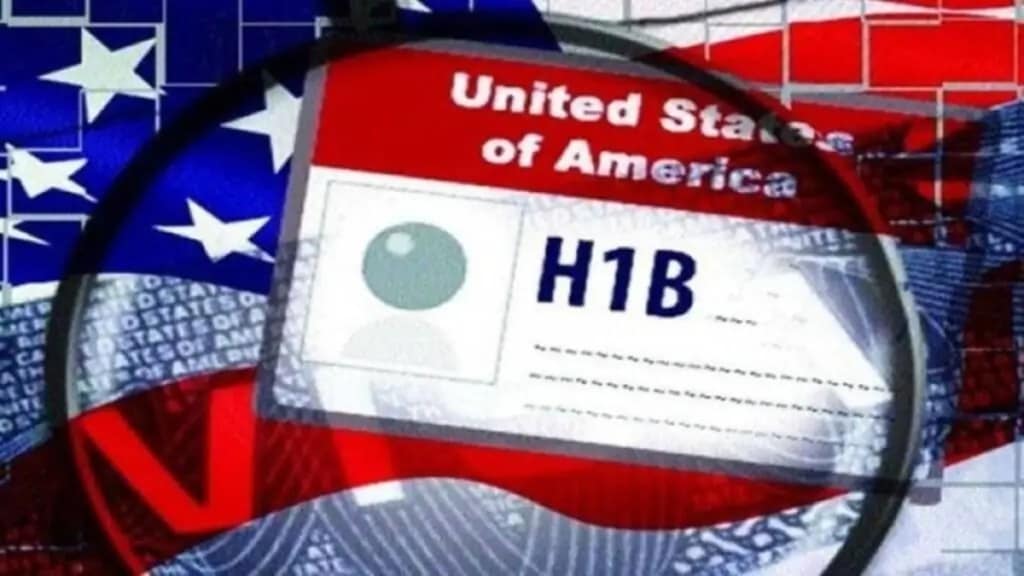The Trump administration announced on Friday that it will investigate employers who exploit the H-1B visa program, designed for highly skilled workers, by hiring lower-skilled foreign labor to cut costs, WSJ reported.
“The Trump Administration is standing by our commitment to end practices that leave Americans in the dust,” Labor Secretary Lori Chavez-DeRemer said in a statement on X. “By rooting out fraud and abuse, the Department of Labor and our federal partners will ensure that highly skilled jobs go to Americans first.” The department added.
Donald Trump’s Project Firewall amid H-1B visa row
The US Labor Department said it will begin probing companies that “abuse” the H-1B system, as part of an initiative to prioritise Americans over foreign-born workers in the labor market. This follows the administration’s earlier move to impose a $100,000 fee on employers seeking new H-1B visas for foreign workers. Current visa holders and those seeking renewals are not affected.
“Highly-skilled jobs should go to AMERICANS FIRST!” the Labor Department posted on X Monday afternoon. “That’s why we launched Project Firewall to end H-1B abuse and ensure employers prioritise American Workers in the hiring process.”
The policy making H-1B visas harder to obtain has made new hiring challenging across sectors, including tech, finance, higher education, and health care. Legal challenges to the administration’s proclamation are expected.
H-1B visas let employers hire foreign workers with specialised skills, primarily in science and technology. The largest number of hires comes from India and China, with government data showing India accounted for 71% of approvals last year, followed by China at 11.7%. H-1B visas, valid for three years and renewable once, are capped at 65,000 per year, with an additional 20,000 set aside for workers holding advanced degrees from US universities.
Previously, application fees ranged below $5,000 per worker. According to experts, Project Firewall is the first federal initiative to actively enforce the H-1B program, which has existed since 1990. Historically, enforcement occurred only when complaints were filed by individual workers.
“Either the person is very valuable to the company and America, or they are going to depart and the company is going to hire an American,” Commerce Secretary Howard Lutnick said Friday. “And that’s the point of immigration. Hire Americans and make sure the people coming in are the top, top people. Stop the nonsense.”
What is Project Firewall?
Under the new initiative, the Labor Department will actively investigate employers to ensure foreign workers receive legally mandated wages and working conditions. Companies could face penalties, including back wages, civil fines, or temporary bans from using the program.
“The H-1B program has essentially never really been enforced,” Ron Hira, political science professor at Howard University, told WSJ. “They could go after wages and working conditions. They could look through the books. They could look at whether they are misclassifying workers.”
Major outsourcing firms, including Infosys, Tata, and Cognizant, hold large numbers of H-1B visas and could be targeted. Roughly half a million people work in the US under H-1B visas, mostly from India, but also from China, the Philippines, and Canada. Most renew their status every three years.
The White House clarified Saturday that the fee applies only to new visas, not renewals. Still, companies like Microsoft and Google advised employees to either remain in the US or return immediately before midnight Sunday. Amazon announced that current H-1B holders with active visas will not be affected.
The US Chamber of Commerce said it is communicating with the administration to “understand the full implications and the best path forward,” expressing concern about the impact on employees, their families, and American employers. While tech companies are the main beneficiaries, manufacturers, financial firms, universities, retailers, and health care providers also rely on H-1B workers.
Malcolm Goeschl, attorney at Goeschl Law in San Francisco, advised clients to avoid international travel unless their petitions were filed before September 21. “It seems like various people were involved in this, and they have different ideas of what it’s supposed to do,” he said. “They don’t have a clear understanding of how the business of immigration works.”
